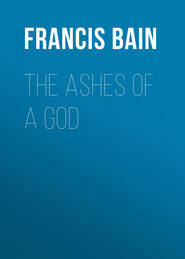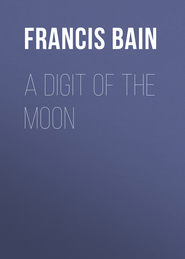По всем вопросам обращайтесь на: info@litportal.ru
(©) 2003-2024.
✖
A Draught of the Blue – An Essence of the Dusk
Настройки чтения
Размер шрифта
Высота строк
Поля
21
An "old shikarri" told me, that he saw on one occasion a panther stalking a goat. As soon as they saw each other, they both stood stock-still, so long, that at last the goat concluded his panther was a mere illusion, and recommenced his dinner, browsing with unruffled mind. He would have paid dear for his simplicity, had not his crafty stalker been this time stalked himself.
22
These ancient forest hermits, who lived alone in jungle, doing penance and eating nothing, are one of the conventions of Hindoo fairy stories. Such a one, like the mediæval saint, a bundle of bones whose breath corrupts the world before his death, generally has a daughter, to whose rare beauty he forms the contrast: that sharp, fierce contrast, which is the essence of the East, like life and death.
23
Abalá, "weak," "without strength," is a common Sanskrit word for a woman, Vas infirmius.
24
Indra is represented as jealous of all ascetics, lest they should reach his total of a century of sacrifices (Shatahratu). But his battle with Raghu on this head ended in a compromise (vide Raghuwanshä, canto iii.).
25
Purusha and Prakriti answer, in a sense, to our Adam and Eve: as the Germans would say, the Ur-mensch and Ur-weib of the world.
26
Ascetics wear their hair twisted in a knot, in imitation of the prince of them all, Maheshwara.
27
When Ovid contrasted the os sublime of man with that of the animals, he gave expression to the idea that underlies the curious Sanskrit term for the brute-creation, the horizontal-goers (tiryag-játi).
28
There is a beautiful Indian idea, that the foot of a pretty woman will cause a particular tree (I cannot recollect which) to break into blossom.
29
"Kissed by the bees." (Note, that the third syllable rhymes, not with crumb, but with room, pronounced rather short.)
30
This single word, a common name in Sanskrit for the lotus, possesses an incomparable, moral and æsthetic, mingled beauty, which can only be poorly rendered in English by five words instead of one. Mud-born is the word: but the meaning it covers is the pure white lotus that springs out of the thick black mire: just as the brightest rainbow is seen against the darkest cloud.
31
No woman in India, even in a fairy tale, is ever independent and her own mistress, unless she belongs to a class outside the pale of moral consideration.
32
Ganesha and Kama, the gods of good luck and love; certainly two formidable antagonists.
33
It is one of the conventions of Hindoo poetry that the petals of the lotus are eight or sixteen in number.
34
Let go! Let go!
35
Though nothing can be less romantic than a canal, gliding through that of Suez is a strange experience at night. Your great ship seems to move, swift and noiseless, through the very sand: and if only you could get there without knowing where you were, you would think that you were dreaming.
36
Háwa, in Canarese, is the name of Ráhu.
37
I did not count them, but there were several dozen, nearly all different. I have reason to believe that this man must have been one of the disciples of a former very celebrated snake charmer, who was known all over India.
38
See, he makes obeisance.
39
Which we may roughly render: Hood of snake brings joy and rue, this to moon and that to you. In all Oriental saws jingle counts for much.
40
"Tutsi, in this world hobnob with everybody: for you never know in what guise the deity may present himself." In the original it is a rhyming stanza.
41
Being actually smeared with ashes. The god is of course Shiwa, and the allusion is to his Ardhandri, or half male, half female form.
42
This punning assonance is precisely in the vein of the original.
43
This name (pronounce Aj- to rhyme with trudge), meaning both unborn and a goat, is a name of the sun (who was a
44
The Lokapálas, or regents of the world, often thus appealed to, are eight: Kubera, Isha, Indra, Agni, Yama, Niruti, Waruna, and Wayu: and they ride on a horse, a bull, an elephant, a ram, a buffalo, a man, a "crocodile," and a stag.
45
When she was lost in the gambling match, and Duhshásana tried to strip her, as he pulled off one dress, another appeared below it, refusing to leave her naked.









